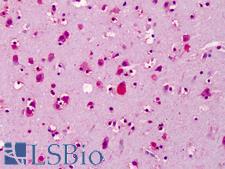Login
Registration enables users to use special features of this website, such as past
order histories, retained contact details for faster checkout, review submissions, and special promotions.
order histories, retained contact details for faster checkout, review submissions, and special promotions.
Forgot password?
Registration enables users to use special features of this website, such as past
order histories, retained contact details for faster checkout, review submissions, and special promotions.
order histories, retained contact details for faster checkout, review submissions, and special promotions.
Quick Order
Products
Antibodies
ELISA and Assay Kits
Research Areas
Infectious Disease
Resources
Purchasing
Reference Material
Contact Us
Location
Corporate Headquarters
Vector Laboratories, Inc.
6737 Mowry Ave
Newark, CA 94560
United States
Telephone Numbers
Customer Service: (800) 227-6666 / (650) 697-3600
Contact Us
Additional Contact Details
Login
Registration enables users to use special features of this website, such as past
order histories, retained contact details for faster checkout, review submissions, and special promotions.
order histories, retained contact details for faster checkout, review submissions, and special promotions.
Forgot password?
Registration enables users to use special features of this website, such as past
order histories, retained contact details for faster checkout, review submissions, and special promotions.
order histories, retained contact details for faster checkout, review submissions, and special promotions.
Quick Order
PathPlusTM BRCA1 Antibodies
BRCA1 is a multifunctional protein involved in maintaining genomic stability via DNA repair and recombination, tumor suppression, and cell replication. Dysfunction of BRCA1 through inherited or somatic mutation or via epigenetic silencing is the oncogenic source of a certain percentage of breast cancers. Mutations in this gene are responsible for up to 80% of inherited breast and ovarian cancers, and can also predispose individuals for other malignancies such as pancreatic cancer. Immunohistochemistry (IHC) staining and testing for wild type and mutated forms of this repair gene are thus necessary for diagnosis and downstream treatment. In IHC of normal tissue, BRCA1 has nuclear and cytoplasmic positivity in populations of cells in most tissues throughout the body.
References: Anticancer Agents Med Chem. 2015;15(1):4-14, PMID: 25329591; “BRCA Mutations: Cancer Risk and Genetic Testing.” National Cancer Institute, URL: https://www.cancer.gov/about-cancer/causes-prevention/genetics/brca-fact-sheet; Nature. 2017 Oct 19;550(7676):360-365, PMID: 28976962
1 PathPlusTM Antibody

☰ Filters
Products
Antibodies
(1)
Type
Primary
(1)
Target
BRCA1
(1)
Reactivity
Human
(1)
Application
IHC
(1)
IHC-P
(1)
WB
(1)
IP
(1)
Host
mouse
(1)
Product Group
PathPlus Cancer
(1)
Isotype
IgG1
(1)
Clonality
monoclonal mc
(1)
Clone
8F7
(1)
Format
Unconjugated
(1)
Epitope
aa341-748
(1)
Publications
No
(1)

Cancer
BRCA1 Mouse anti-Human Monoclonal (aa341-748) (8F7) Antibody
Human
IHC, IHC-P, IP, WB
Unconjugated
50 µl/$375
Viewing 1-1
of 1
product results











